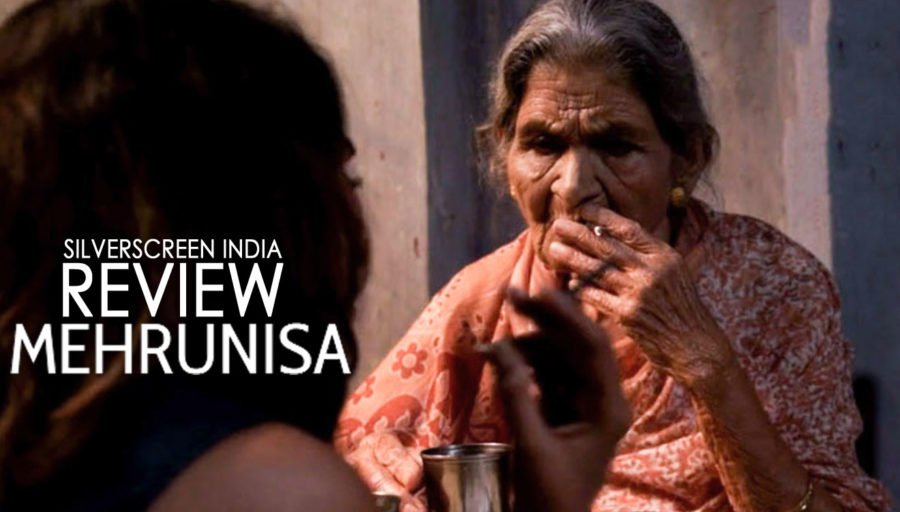Director: Sandeep Kumar
Cast: Farrukh Jaffar, Ankita Dubey, Tulika Banerjee
Indian origin director Sandeep Kumar’s Austrian film Mehrunisa, which had its world premiere at 51st International Film Festival of India, is about an octogenarian Lucknowi begum who puts up a tough battle against society’s ageism. Hell breaks loose in her haveli when she chops up her husband’s cot on the day of his funeral a symbolic act to announce to the people around her that she will no longer be living according to someone else’s rules. She starts to sneak out of the house at odd hours to smoke and drink to her heart’s fill. She decides to return to Hindi cinema where she, before her marriage, was an actress who shone in small but significant roles. To the dismay of her daughter, a single mother, and the amusement of her granddaughter, Mehrunisa embraces freedom instead of confining herself to the traditional notions of old age.
Farrukh Jaffer, the actress so rooted in Lucknow’s milieu, who played a similar role in Juhi Chaturvedi’s Gulabo Sitabo (2020), plays the titular lead role of the former actress who seeks a second chance in Bollywood, this time not as a supporting actor but as the protagonist in big-budget films. When the producers of an upcoming movie about Lucknow’s 1857 revolt visits the begum with an offer to cast her in a supporting role, she snaps at them. She points out the grave mistakes in their script, “Women who led the revolt are invisible in your text!”
The premise carries out through a familiar narrative dichotomy ambition vs tradition. In a film industry that abandons female stars once they have crossed their 30s, and pairs their contemporary male actors with much younger actresses, Mehrunisa is a thematically significant work like Alankrita Srivastava’s Lipstick Under My Burqa (2016), where Ratna Pathak Shah played a 55-year-old woman who is ridiculed for her sexual desires.
Jaffer possesses a unique sense of humour and a pluckiness that elevates the narrative. She is mirthful and saintly profound at once, subtly underlining the long time Mehrunisa has lived and grasped. Mehrunisa’s fight isn’t only against the film industry but the larger society that it mirrors. In a heartwarming moment, she asks Alia, her grand-daughter, about her boyfriend problems and advises the young woman against marrying anyone who would chain her up.
But Kumar’s film, notwithstanding its compelling protagonist, is an uninspiring work that, rather than looking at the complexity in characters, relies on tacky broad strokes and television aesthetics. It is plainly shot, with only one thing to see or perceive in every scene. Some of the interactions between the women in the household ﹣Mehrunisa, her daughter, Alia, and Amina, the maid﹣are well done; you get a sense of the commonalities they share despite their varied backgrounds.
Recommended
But more than often, the film relies on verbal exchanges and not mise en scene to narrate the story. It stuffs ideas into the foreground, leaving the background of the narrative meaningless. The performances of the film’s supporting cast are mainly toneless. The film gropes in the dark when it has to express the hardships Mehrunisa undergoes to be what she wants to be. It passively follows her as she goes from town to town to meet important people, and uses a clichéd montage of Alia poring over books and laptop, preparing a feminist screenplay.
Mehrunisa’s fight is against Bollywood’s century-old system, but the film resolves it within the snap of a finger. It oversimplifies the concept of “public sentiment” and assumes that an episode of television talk show can trigger revolutions in an incredibly complex society like India.
Among many things, the film takes for granted the art of screenwriting. It’s unintentionally funny when Alia tells her grandmother that she is ready to re-write the feature film script since she “spent a whole night researching on the subject”.
Ironically, the film’s utterly clumsy screenplay points to the fact that screenwriting, like filmmaking, is a demanding job, which takes a lot more than a stunning idea.
****
Mehrunisa premiered at the 51st International Film Festival of India at Goa.
****
The Mehrunisa review is a Silverscreen original article. It was not paid for or commissioned by anyone associated with the film. Silverscreenindia.com and its writers do not have any commercial relationship with movies that are reviewed on the site.



